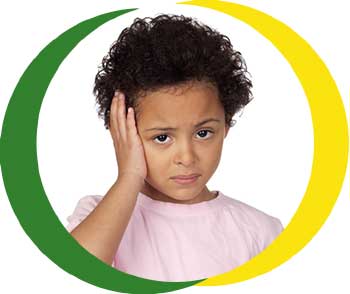Headache

Headaches in children are common. Most of the time they are mild and only happen from time to time.
- There are plenty of things you can do to help your child to feel better such as making sure they drink plenty of water, taking regular exercise and ensuring they are sleeping well.
- Stress can often play a part in children’s headaches, especially the older they get so make sure you have a good chat about what is going on in their life.
- Sometimes headaches can be a sign of something more worrying. Please see the table below for some of this things to look out for.
When should you worry?
If your child has any of the following:
- If your child becomes very sleepy with their headache or is difficult to wake
- If your child’s headache is associated with confusion, disorientation or change in behaviour
- If your child’s headache is waking them from sleep
- If your child’s headache is worse on coughing or straining
- If your child develops new, persistent blurring of their vision, double vision, new squint or abnormal eye movements
- If your child develops new weakness/ loss of balance / co-ordination problems / abnormal head posture or walking difficulties
- If your child develops vomiting overnight or persistent daytime vomiting related to headache.
You need urgent help.
Go to the nearest Hospital Emergency (A&E) Department or phone 999
If your child has any of the following:
- If your child’s headache is unresponsive to initial advice/treatment given by your doctor/nurse
- If your child needs paracetamol or ibuprofen more than 3 times a week
- If your child’s headache is impacting on school attendance
You need to contact a doctor or nurse today.
Please ring your GP surgery or call NHS 111 – dial 111
If none of the above features are present.
Self care
Continue providing your child’s care at home. If you are still concerned about your child, call NHS 111 – dial 111
How can you help your child’s headache?
- Start a headache diary. Record date, time, triggers, severity and any other associated symptoms. Ensure your child is drinking a good amount of fluid (no caffeine/fizzy drinks)
- Ensure your child is eating regular meals and doesn’t skip meals
- Ensure your child is getting good sleep
- Ensure your child is having regular exercise
- Consider limiting screen time
- Simple analgesia paracetamol or ibuprofen can be given as per the instructions on the packaging but less than 3 times a week
- Sometimes headaches can be due to vision or teeth problems. Book your child an eye test with your local optician and an appointment with a dentist for a check-up.
HeadSmart: Know the signs and symptoms
View the age group for a full list of the signs and symptoms.

